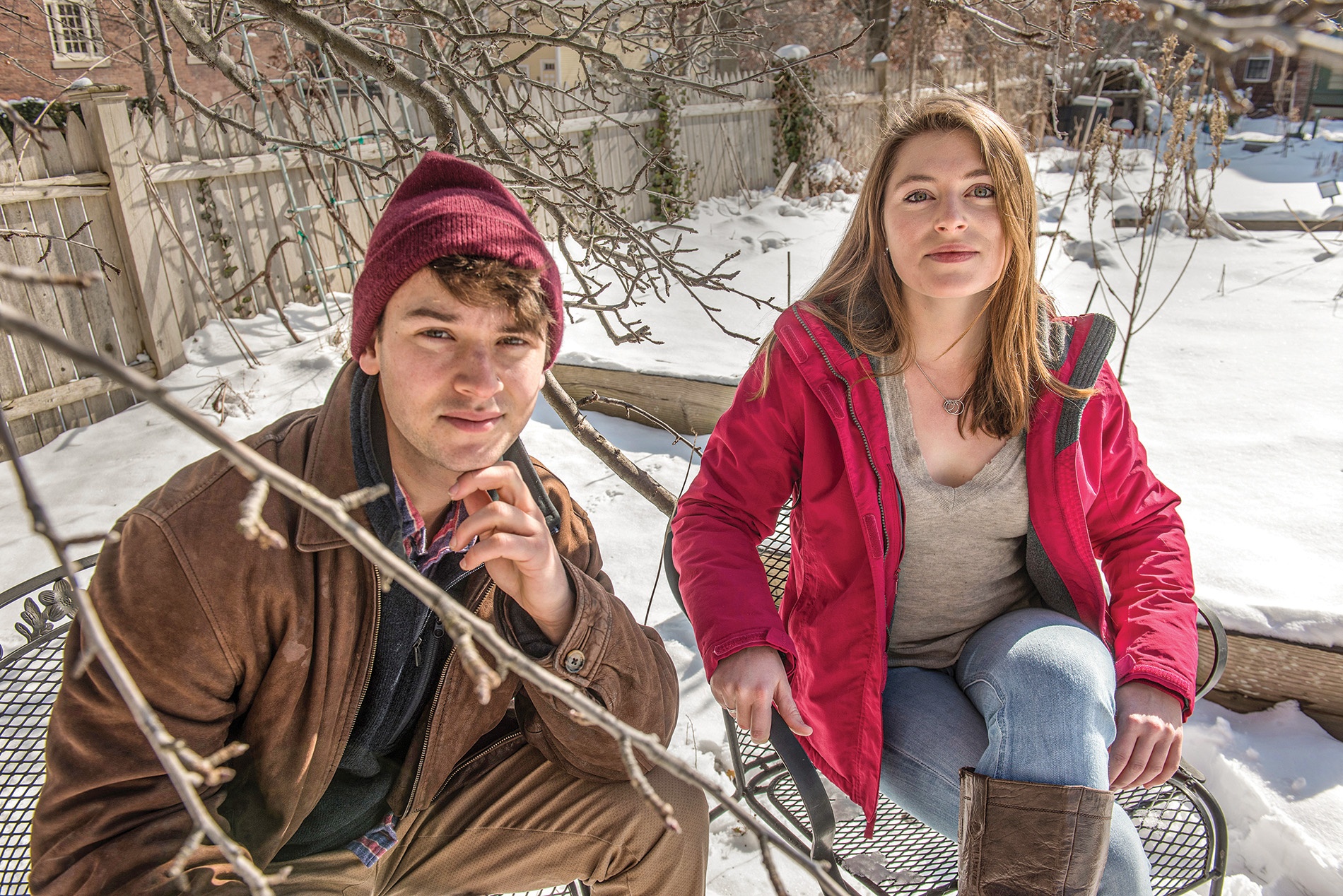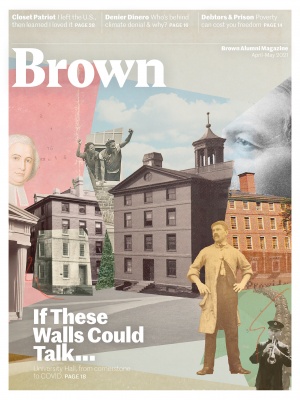
Follow the Money
Students make national news by exposing who’s been funding the movement to deny climate change.
In the Urban Environmental Lab, a small, unassuming building that sits behind a vegetable garden on Waterman Street, students and professors are taking on one of the most powerful forces of the past three decades: the climate denial movement.
“Climate change denial pushed by corporations is a fraud on the American public,” says Cartie Werthman ’21, a senior who is currently working on research for the Climate Development Lab (CDL). “And it’s not the first time that this has happened. This is not a new fraud. This is the tobacco industry’s fight retrofitted toward the fossil fuel industry.” Werthman is one of over a dozen undergraduates researching the climate change countermovement, as members of the CDL refer to it, for the lab.
Professor Timmons Roberts cofounded the CDL in 2010 with the intention of including Brown undergraduates in the process of producing research to inform climate policy. For nearly a decade, Roberts brought Brown undergrads from his class on engaged climate policy to the United Nations Climate Change Conference, where the students presented research on behalf of small and poor countries that did not have the resources to prepare policy materials. But while attending the 2017 conference in Bonn, Germany, where 18 Brown students were working with the poorest 48 countries in the world, Roberts realized that their work would have more impact elsewhere.
“Our president had just withdrawn from the Paris Agreement,” Roberts says, “and we were pressuring other rich countries to fulfill their treaty obligations.” He realized that with the United States out of the Paris Agreement, it was time to “take the lab back home.”
Roberts hired environmental sociologist Robert Brulle to join the lab, “the most exciting sociologist who had a research agenda that was most useful in fighting climate change of any sociologist I had ever seen,” Roberts says. Brulle is one of the nation’s leading scholars studying climate denial, and his addition to the lab helped Roberts to launch a new area of research. While there are a few political scientists and sociologists across the country studying the actors and networks behind climate politics, Brulle is systematically compiling quantitative data to show the scale of this effort.
Brulle has focused on climate denial because “it doesn’t seem to me that we lack a whole lot of solutions about what to do,” in terms of fighting climate change. “It’s not the climate science that we don’t understand. The problem is, we can’t move politically and economically to get action on climate change.” His research focuses on “getting the roadblock out of the middle of the road”—that is, the climate change countermovement, funded by fossil fuel, railroad, and utility companies. Brulle, along with Roberts, has been helping to guide student research on the climate denial movement.
Peddling Denial
Werthman and other undergraduates in the CDL have spent the past year digging into the public relations companies that work for corporations promoting climate denial. Werthman developed the idea for the project while looking through industry directories of public relations firms that had been hired by oil companies and fossil fuel trade groups—she realized that the majority of companies doing climate denial PR work had hired the same few firms. Studying these companies is crucial, Werthman says, because they magnify the message of climate denial while enabling fossil fuel companies to hide behind them.
“Several powerful public relations firms have created and amplified the messages of climate change denial on behalf of the fossil fuel industry,” according to the report published by Werthman’s research group. Between 2008 and 2017, the American Petroleum Institute spent more than $50 million each year on contracts with PR firms, according to the report. Last fall, Werthman and the undergraduate researchers she was leading on her report visited Washington, D.C., to present their findings to lawmakers as part of Roberts’s engaged climate policy course.
“I’ve just been blown away by the ability of the people in my group to talk to congresspeople and senators and say, ‘these are the companies that are pushing the message that climate change is an issue we don’t need to focus on,’” Werthman says. “We are able to identify this process that goes on largely in the background that a lot of people don’t focus on and say, this is the reason we can’t pass comprehensive climate change legislation.”
Another teaching assistant for the course this fall, Cole Triedman ’21, added that the research shows that “the failures of climate policy in the last three decades shouldn’t be something we blame ourselves for. In fact, we should direct our blame to the corporate apparatus.”
Triedman led a research project of his own, the findings of which were a significant part of a feature in the Atlantic last December. He worked with a group of undergraduates to investigate the role of utility companies in the climate change countermovement. The final report by Triedman and coauthors Andrew Javens ’21, Jessie Sugarman ’20, and David Wingate ’20 revealed the scope of collaboration between utilities and railroads—which transport most of the country’s coal—in peddling climate change denial. “Tracking the mine to the power plant, we found that an elite cohort of coal companies is dealing with an elite cohort of rail companies,” Triedman told the Atlantic.
Triedman says that the consequences of his and Werthman’s groups’ findings are profound for academics and lawmakers alike. “Things don’t
happen randomly,” Triedman says. “In climate politics, things happen largely based upon an in-
credibly well-funded, well-coordinated, and well- strategized long-term campaign by conservative elites and industry.”





